“Money is easy to get… All you have to do is kill!”
|
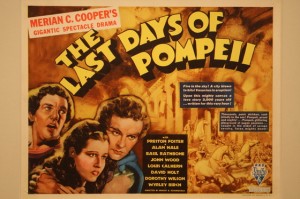
Synopsis:
After the accidental death of his wife (Gloria Shea) and infant son, a poor but happy blacksmith (Preston Foster) in Pompeii reluctantly becomes a gladiator. Out of guilt, he adopts the son (David Holt) of an opponent he has killed, and soon becomes a prosperous horse trader. Years later, his grown son (John Wood) is more interested in freeing slaves than in inheriting his father’s wealth and status.
|
|
Genres, Themes, Actors, and Directors:
- Alan Hale Films
- Ancient Greece and Rome
- Basil Rathbone Films
- Character Arc
- Disaster Flicks
- Father and Child
- Historical Drama
- Louis Calhern Films
- Preston Foster Films
- Slavery
Review:
Loosely inspired by Edward Bulwer-Lytton’s 1834 novel of the same name, this historical epic by the producers of King Kong (1933) is primarily notable for its depiction of Mount Vesuvius erupting onto Pompeii. However, these final scenes — while impressive — play second fiddle to the bulk of the film, which tells a surprisingly heartfelt story of fatherly devotion. Preston Foster does a fine job depicting Marcus’s transformation from a gentle blacksmith to an ambitious horse trader, and is believable as an older man. Basil Rathbone is equally impressive — and appropriately regal — in his brief scenes as Pontius Pilate. Unfortunately, the film is marred by Roy Webb’s generic score, which makes no attempt to transport viewers into ancient times; we eventually believe in this world despite the soundtrack, not because of it.
Redeeming Qualities and Moments:
- Preston Foster as Marcus
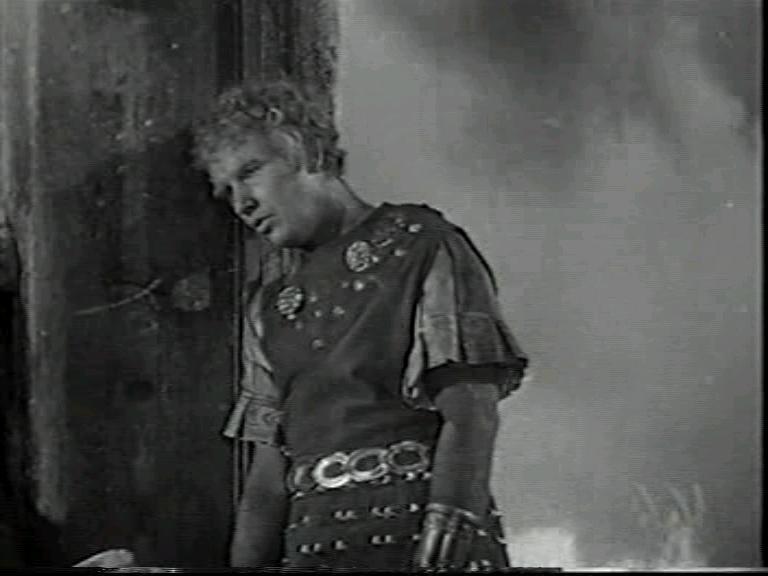
- David Holt as young Flavius
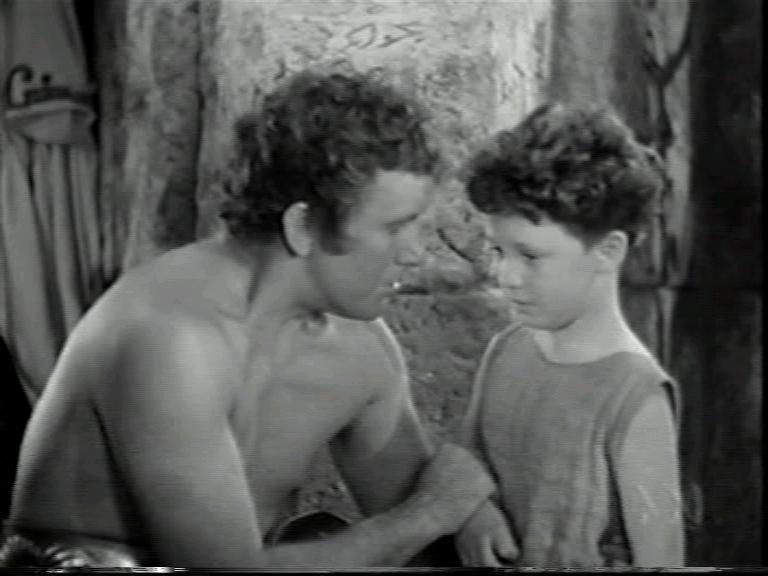
- Basil Rathbone as Pontius Pilate
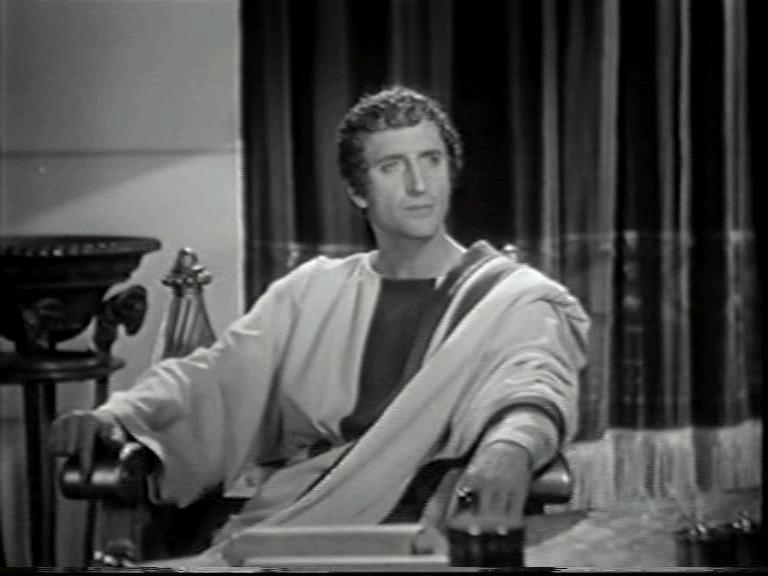
- Impressive set designs
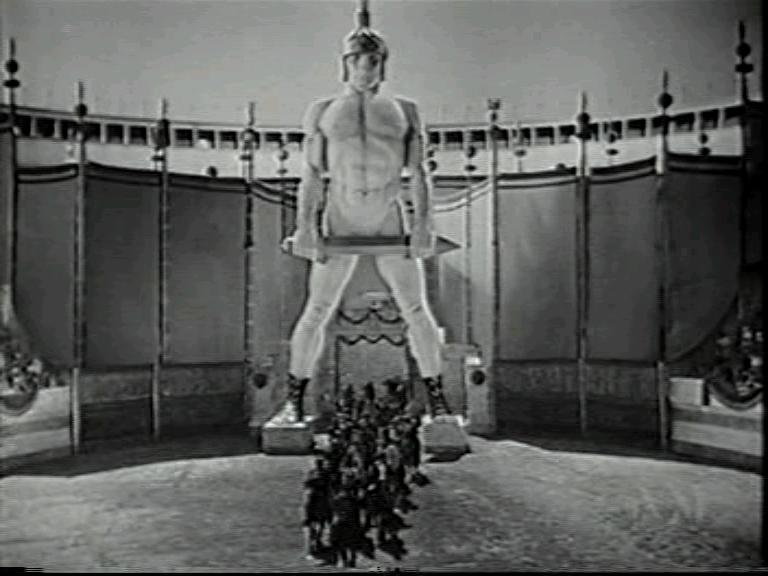
- A reasonably accurate depiction of ancient Roman life
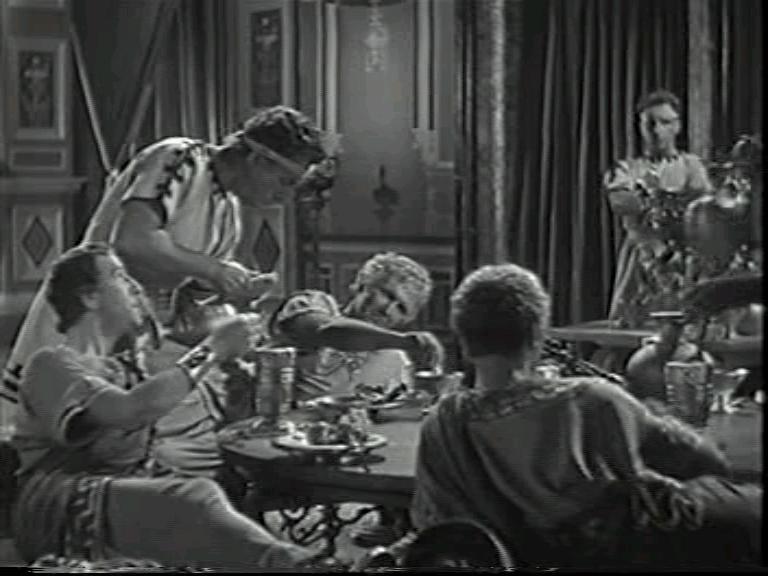
Must See?
No. While it holds some historical interest and is enjoyable to watch, this is ultimately not must-see viewing.
Links:
|
One thought on “Last Days of Pompeii, The (1935)”
First viewing. A must-see, for its place in cinema history.
Because I never thought to check, I didn’t know until today that this film was co-directed by the ‘King Kong’ team of Ernest B. Schoedsack and Merian C. Cooper, with a screenplay by Schoedsack’s wife Ruth Rose (whose handful of writing credits include ‘King Kong’, ‘Son of Kong’ and Mighty Joe Young’).
I’m sure I knew that DeMille wasn’t behind the camera on this one (the premise was his type of thing, of course) but I guess I presumed it was someone simply doing a DeMille turn. Turns out it wasn’t just ‘someone’ but, instead, a rather talented team.
And they managed to do DeMille one better. As soon as I started watching, I was sucked in within minutes and pretty much held fast throughout. Much of the thanks for that should go to Rose’s script – which apparently completely jettisoned the respected but creak-filled novel. In her dialogue, Rose somehow managed to find a happy (and believable) compromise between speech patterns of the period (whatever those would have been) and an all-too-modern cadence.
But the success of the film goes further. Each scene flows beautifully, one into the other, with admirable economy – and the pacing moves continuously ahead without our realizing it. The film’s 96 minutes seem to fly by.
Costume and production designs are splendid. (I sort of want to assume that the giant gladiator at the entrance to the arena was the brain-child of a gay staff member – but that’s another story. 😉 )
Even the acting is commendable (Foster and Rathbone are especially good) – with the idea toward being more of a historical fiction document than something more reverent (which it only is peripherally). In a word, it’s all very tasteful.
Yes, the score might be a bit much at times – I didn’t find that to be a troublesome point.
The extended sequence which covers Pompeii’s destruction is particularly well-handled in its staging (i.e., in the way character relationships are kept track of) – and the film, at its finish, still leaves us feeling relieved and moved.